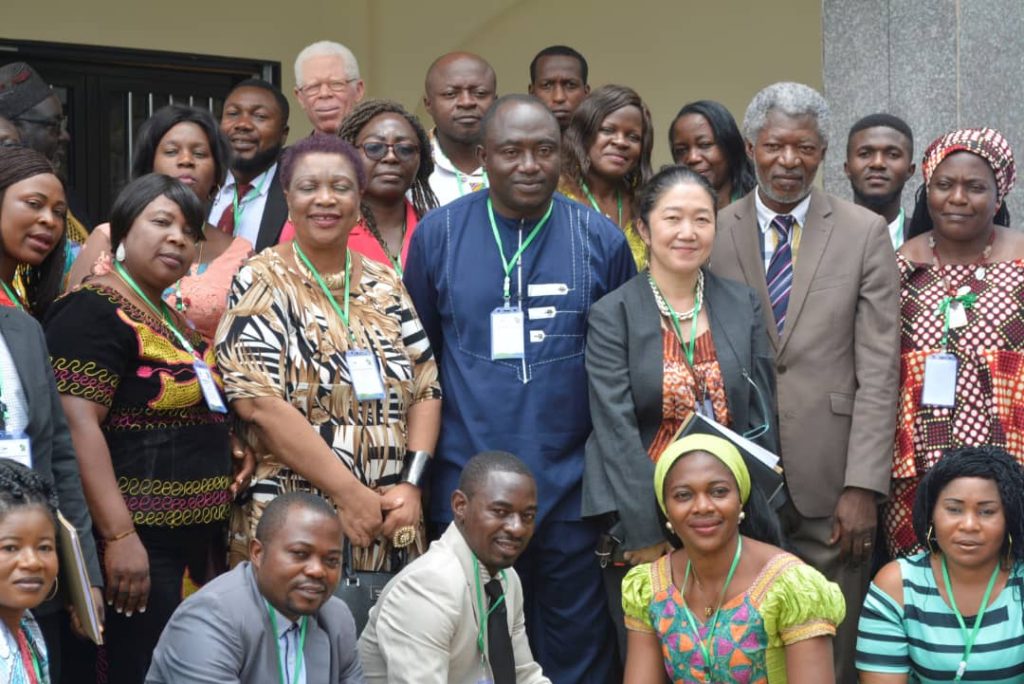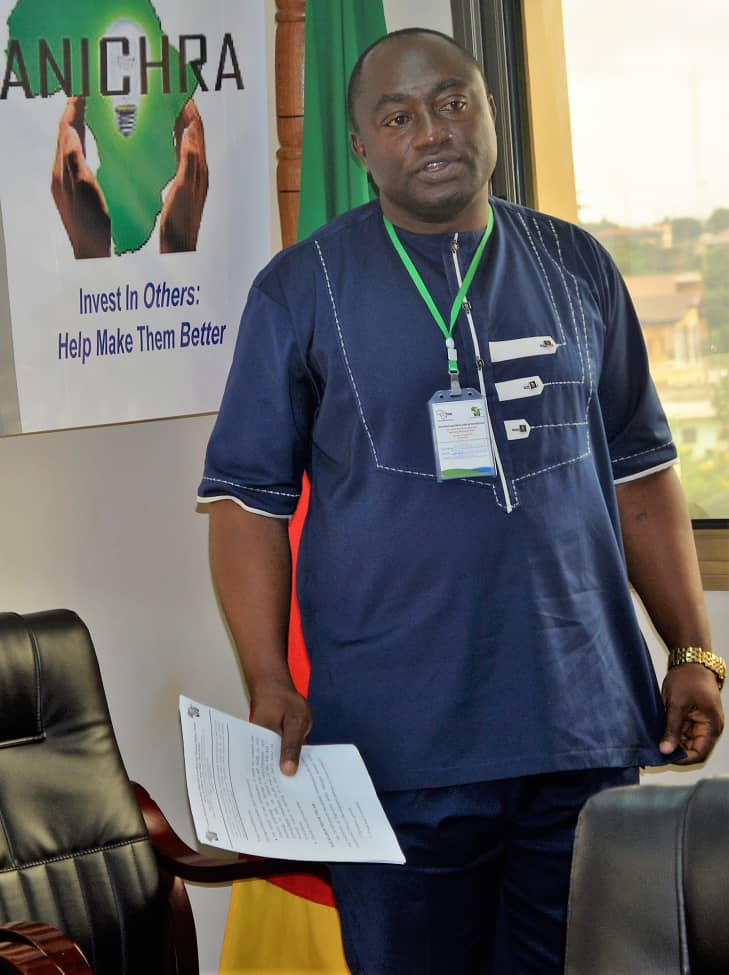The recent speech of President Paul Biya, announcing a Grand National Dialogue, is a welcome relief for three principal reasons.
Firstly, the announcement officially validates the existence of the Anglophone Problem in Cameroon, which has been central subject tomy over twenty-two years of research and publications (including Master’s and Doctoral Thesis).
Secondly, the announcement vindicates all those who have been hitherto; accused of fueling the on-going crisis and consequently, division in the country.
Thirdly, it provides a wonderful opportunity for peace-loving and humanity-driven people to provide lasting solutions to a problem which has resulted to serious humanitarian crisis and attracted international attention.
Interestingly, even those who had denied the existence of any peculiar Anglophone problem in Cameroon, are now rushing around and clamoring to join the Grand National Dialogue to resolve a problem they never thought existed in the first place. I hope they come to terms with the realities.
No matter our different positions relative to the current situation in Cameroon, the call for Grand National Dialogue should be of prime importance to every Cameroonian and friend of Cameroon to actively participate in this initiative that should, hopefully, culminate to sustainable peace.
After all, the history of international relations reveals that, all conflicts, no matter how bitter and devastating they may have been, end up through effective dialogue and concessions with the ultimate desire for PEACE.
Peace is the result of concrete and conscious actions aimed at rolling back, minimizing and transforming conflicting to cordial relationships.
Peace has to be permanently constructed and weaved around SOCIAL JUSTICE, without which peace will remain an empty wish.
The announcement calling for a National Dialogue was abundantly clear that, although other national issues shall be discussed, priority should be given to the Anglophone Problem in order to bridge the Anglophone/Francophone dichotomies and stop the on-going war that has caused serious humanitarian crisis in the Northwest and Southwest Regions of Cameroon in particular and has affected the country in general.
For the sublime interest of humanity, let us all stop wasting time and wasting lives in this senseless war. The time for dialogue is now. Permit me concentrate on the priority area of the National Dialogue, the Anglophone Problem (the case of the Southern Cameroons) and share my humble thoughts, a summary of my citizenship responsibility and intellectual contributions.
- Evidently, the crisis/conflict has degenerated and dragged on because of the following reasons, among others:
- The initial government (official) denial of the existence of the problem
- The complacent silence of a majority of Francophone Cameroonians
- Inadequate Historical knowledge of the problem by the Francophone masses coupled with inadequate Historical dialogue
- Misinformation through media campaigns about the problem
- Not heeding to early–warning signals and persistent negative name-calling and hate speeches/action (e.g.terrorists, secessionists etc. from both sides of the divide)
- Political corruption to kill/ distort evidences and undermine the problem with a huge campaign strategy of divide-and rule
- Exaggerated arrogance and intimidation of anyone who shows some sympathy to the Anglophone Problem.
- Public undermining and underestimating the determination of the Anglophones in the crisis and hoping that time will naturally take the crisis away.
- Political greed as some politicians considers solutions only through their political lenses.
- Extreme use of brute force to resolve the problem which rather radicalizes the population instead of soft power.
- Mutual suspicion between the military and the civilian populations in the affected regions.
- Judicial excesses and persistent injustices
- NGOs/ CSOs insistence of PEACE without much interest in concrete actions about the root causes of the conflict.
- Poor peace and humanitarian communication strategies.
- Negative influence of the Diaspora who erroneously thinks that they have monopoly to provide solutions without any consultations with the base.
- Negative ethnicity and comparing the problem with other ethnic problems, whereas the Anglophones constitute a people and not an ethnic group.
- Canalized top-bottom and instructional agenda for dialogue.
- Inadequate empathy on the plight of Anglophones as Cameroonians.
- Power-positioning and survival strategies of political “Elites” of the Northwest and Southwest Regions
- Fright, double standards and hypocrisy of some Anglophone educated elite, who hardly articulate their thoughts in public, but shout fowl in privy.
- Inadequate action and double standards of the International Community (AU, UN)

The Urgent Need for Major National Dialogue
With the above considerations, there should be urgent need for DIALOGUE to rebuild PEACE. Any dialogue aimed at sustainable peace should be genuine and free from emotions and obsessions.Participants to the dialogue should be fair, frank, firm and friendly.But what should be the form of dialogue? Who should be involved? Where should the dialogue take place and what should be the talking points?
a) Form (three)
Since the principal aim of the dialogue is to resolve the Anglophone Problem and bring back peace to the North West and South West Regions, we suggest that the dialogue should take three stages.
Stage 1 (2 days)
• Two (2) days should be reserved to talk on the Anglophone Problem exclusively by the Anglophones to clearly articulate their problem and select their representatives.
Stage 2 (2 days)
• Two days should be reserved for discussions between duly selected representatives of Anglophone and Government representatives on the Anglophone Problem.
• Clear resolutions following discussions between these two groups should be made
NB: During these initial four (4) days above, specific national problems (from the Northern, West, East, SAWA, Beti Fang, Bassa etc) should be discussed and positions prepared by specific groups/regions/interests separately.
Stage 3 (2 days)
• Consolidation of all resolutions (1 day)
• Presentation of outcome proposals or resolution (1day)
• Review/scrutiny/Adoption/Legislation
Stage 4 (one week)
• Possible discussion and adoption of resolutions at the National Assembly/Senate
b) Who should be part of the Dialogue?
• Level-headed persons with renowned integrity and strong positive influence on the population. They should adopt non-partisan positions. They should have clear knowledge of the problems at stake and should be willing and able to clearly articulate solutions without fear or favor.
• Anglophones taking part in the dialogue should be chosen by Anglophones themselves
• The dialogue should have independent observers to guarantee the respect and effective implementation of the (resolutions) outcome document.
c) Where the venue?
• Like many other National Dialogues borne out of crisis situations, dialogue on the Anglophone Problem should have preferably been in a neutral venue.
• However, as the current situation imposes a venue in Yaounde, there should be a strong commitment to respect the outcome document.
• Venue should be free from harassment of persons with contrary views
d) What should be discussed (everything)
• Priority to the root causes of the Anglophone problem
• General Amnesty for all connected to the Anglophone Problem
• Form of the State
• Rotatory Presidency
• Proportional representation in Governance
e) Expected outcome:
i) Immediate measures
• Immediate ceasefire.
• Immediate withdrawal of all the elite (3rd degree military) forces from the affected regions, return them to the barracks and if possible replace them with experienced peace-keepers and peace crusaders, whose language of communication should be exclusively, English.
• Declare of 3 days of National Mourning in honor of all those killed (both military and civilians) since the conflict started in 2016.
• Creation of a National Commission for Truth, Social Justice, Historical dialogue and Reconciliation.
• Organised an interdenominational religious service that will culminate in public reconciliation between the radically opposing parties.
• The National Communication Council, in collaboration with all stake holders should formulate and engage in media campaigns on peace-building, effective citizenship and Humanitarian communication against Hate Speeches and Hate Actions with clear prescribed sanctions against defaulters
• Immediate measures should be taken to provide reasonable and visible solutions to the grievances of Lawyers and teachers.
ii) Medium term
- Establish a special rehabilitation scheme for the youth of the North West and South West Regions as was the case of the Boko Haram affected Far Northern Region of the country.
- Engage in a reconstruction scheme for the over 300 villages destroyed (burnt down).
- Compensate all those who have lost property due to the crisis.
- Engage in a DREAM HOME PROJECT intended to rebuild some trust and encourage the over 500.000 Anglophone refugees and about a million Internally Displaced (IDPs) to return home.
- Rotatory Presidency. The presidency should rotate between Anglophones and Francophone Cameroonians. On interim measures and for pacification, the next President of the country should come from the North West or South West Regions (all political parties should place candidates from those regions) for next Presidential elections.
- Adoption of a clear text of application on bilingualism.
- Legislative dispositions to de-tribalize our Universities and public institutions.
- On sustainable English/French bilingualism, there should be a massive recruitment of bilingual elementary school teachers to ensure that every Cameroonian child is taught in both English and French from the very first day in school.
- Curriculum for the Cameroon educational system should be harmonized to reflect the Cameroonian realities. However, harmonization should not mean the erosion of one sub-system in favour of the other, unless otherwise considered and approved as strong points.
- Engage in effective research to re-write the true history of Cameroon based on verifiable facts and figures.
- The government should pay great attention to the economic development of the Anglophone Regions which has been abandoned for long. The natural resources from these regions should be transformed in the region
A policy of One administrative division-One industry should be adopted
iii) Eventual expected Outcome
- Complete revision of the constitution to accommodate final outcome proposals.
- Renaming the country (Federal Republic of Cameroon)
- Rethink the two versions of the National Anthem
- Review National Day celebrations (20th May, February 11th)
- Encourage the adoption of national languages
In making the above proposals, some details may have been left out.
However, we have considered every aspect of the Anglophone/Francophone dichotomy in Cameroon: historical, political, economic and socio-cultural realities.
They may not match your aspirations, but they may be some concrete blocks on which we can build some PACIFICATION. Peace remains elusive if not built on concrete actions. Peace should be weaved around SOCIAL JUSTICE. No peace no development.
This is just honest thoughts and humble proposals.
Yours truly,
Willibroad Dze Ngwa, PhD.
*About the author

Prof. Willibroad Dze-Ngwa is one of the pioneer researchers on the internal state structure of contemporary Cameroon.
He researched and completed a Master’s Degree on the topic “The Anglophone Problem in Cameroon: A Historical Perspective, 1916 – 1995”and moved on to defended a PhD thesis on the topic “National Unity and National Integration in Cameroon, 1961-2000: Dreams and Realities” (conflict mapping). He is Historian/Political Scientist with focus on Peace and conflict studies.
He is returned SUSI Scholar of Political Science from the Donahue Institute, University of Massachusetts, Amherst.
He was also returned Fulbright Scholar-In-Residence and thought at the Department of Political Science and Public Administration, Savannah State University, Georgia (USA).
Dze-Ngwa is an international scholar/consultant on Peace and Conflict Studies, Humanitarian Action, Good Governance, Human Rights, Minority issues, Sustainability & Comparative Education.
He is currently, permanent faculty at the University of Yaoundé I (Cameroon)and the Heritage Higher Institute for Peace and Development Studies.